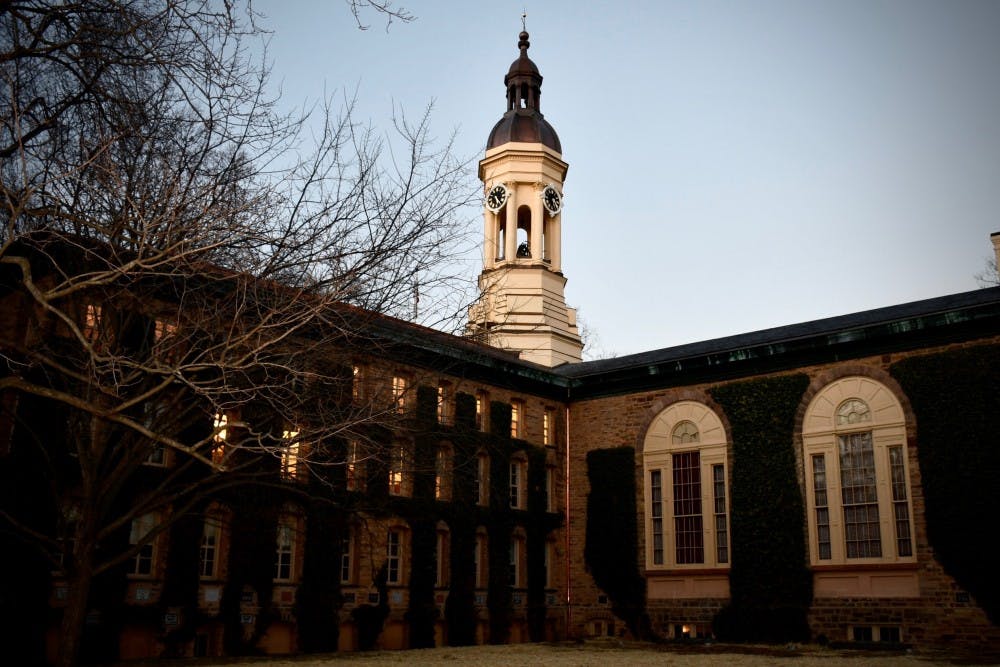For the 10th consecutive year, U.S. News and World Report has ranked the University as the top university in the nation. The 2021 rankings — released Sunday night — list a total of 389 schools.
Behind the University, the report ranked Harvard University in second place, Columbia University in third, and the Massachusetts Institute of Technology and Yale University tied for fourth.
Other colleges in the top 10 were Stanford University, the University of Chicago, the University of Pennsylvania, the California Institute of Technology, the Johns Hopkins University, and Northwestern University.
“We certainly appreciate recognition of Princeton’s commitment to contributing to the world through teaching and research of unsurpassed quality,” Deputy University Spokesperson Michael Hotchkiss wrote to The Daily Princetonian. “And we appreciate the remarkable efforts by our students, faculty, and staff to continue pursuing that mission energetically, imaginatively, and passionately while working to protect the health and well-being of our entire community amid the COVID-19 pandemic.”
The University, however, did not fare as well in every U.S. News ranking. In “Top Performers on Social Mobility,” the University was ranked 203rd, after placing at No. 186 last year. The category ranks colleges’ performance in enrolling and graduating socioeconomically disadvantaged students, specifically those who receive federal Pell Grants.
Pell Grant-eligible students currently constitute around 24 percent of entering classes at the University.
The University also lost ground compared to last year’s rankings of “Best Undergraduate Teaching” and “Best Value Schools.” For 2020, U.S. News had ranked Princeton No. 1 in both categories, but in this week’s lists, the University tied for fourth in undergraduate teaching and came out second for best value.
Brown University, though ranked No. 14 in “National Universities,” claimed the top spot in the undergraduate teaching category, while Harvard was deemed the best value school.
This year marks the 36th edition of U.S. News’ annual colleges report. To analyze the 2021 rankings, U.S. News used data from fall 2019 or earlier. The organization’s methodology, according to its website, uses “only thoroughly vetted academic data from our surveys and reliable third-party sources.”
“For better or for worse, we do not factor nonacademic elements like social life and athletics,” the rankings’ authors wrote. “We do not conduct unscientific straw polls for use in our computations, and schools’ ranks are not manipulated to coddle business relationships.”
In recognition of how the COVID-19 pandemic has upended higher education, this year’s rankings re-introduced test-blind schools. Previously, colleges that did not require standardized tests, such as the SAT and ACT, were ineligible for consideration.
Ranking factors for national universities included graduation and retention rates, academic reputation, class size index, student-to-faculty ratio, faculty compensation, percent of full-time faculty, acceptance rate, standardized test scores of the incoming class, financial resources per student, average alumni giving rate, total student loans of graduating class, and “social mobility” — measured in part by graduation rates of students who are Pell Grant recipients.

The University was listed as 12th in “Best Undergraduate Engineering Programs,” 22nd in “Most Innovative Schools,” 17th in “First-Year Experiences,” and fifth in “Computer Science.” The University was ranked first in the “Senior Capstone” category, which considers the culminating academic projects or theses that undergraduates undertake.
The U.S. News college rankings, however, have faced widespread criticism and scrutiny from leaders in higher education. John Tierney, a former professor at Boston College and contributor at The Atlantic, wrote that such lists only “exacerbate the status anxiety” of prospective students.
Washington Post analyst Valerie Strauss criticized the rankings’ input data, writing, “Rankings are still ridiculous when it comes to choosing a college.”
“Select the one you like among those with a high four-year graduation rate,” she advised.








